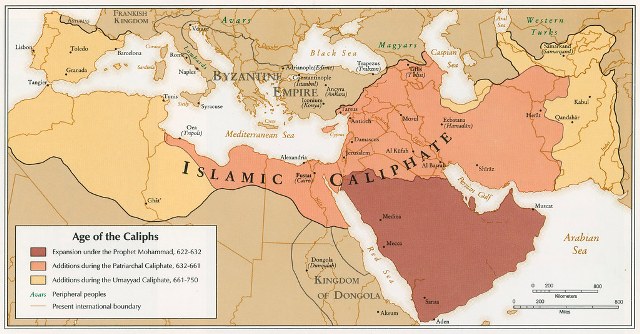In the Islamic history, few documents shine as brightly as the Constitution of Medina. Drafted and promulgated by Prophet Muhammad (peace be upon him) shortly after his migration to Yathrib (later known as Medina), this charter stands as a pioneering model for pluralistic society, offering timeless lessons on coexistence, justice, and civic unity. Its significance reverberates through Islamic teachings and continues to inspire contemporary approaches to peaceful pluralism.
The Significance of the Constitution of Medina in Islamic Teachings
The Constitution of Medina, also known as the Medina Charter, was not merely a political agreement but a profound manifestation of Islamic values in action. At a time when tribal allegiances and religious divisions threatened the fabric of society, Prophet Muhammad (PBUH) established a framework that transcended lineage, faith, and ethnicity, uniting the diverse inhabitants of Medina under a single, inclusive civic identity.
This charter, comprising around 47 to 63 articles depending on the historical compilation, is widely recognized as the first written constitution in history, predating the Magna Carta and the American Constitution by centuries. It laid the groundwork for a society where Muslims, Jews, and other communities could coexist with mutual respect, each retaining their religious and cultural identities while sharing collective responsibilities.
Quranic Foundations for Pluralism and Justice
The principles embedded in the Constitution of Medina are firmly rooted in the Quran, which repeatedly emphasizes the dignity of all human beings and the value of diversity. Allah Almighty says:
“O mankind, We have created you from a male and a female and made you peoples and tribes that you may know one another. Indeed, the most noble of you in the sight of Allah is the most righteous of you.” (Quran 49:13)
This verse encapsulates the Islamic ethos of recognizing and respecting diversity, a principle that underpinned the Medina Charter’s approach to governance and social harmony.
The Historical Context: Medina Before the Charter
Before the arrival of Prophet Muhammad (PBUH), Medina was a city fraught with tribal rivalries, particularly between the Aus and Khazraj tribes, and home to various Jewish clans and smaller Arab groups. Social order was fragile, and cycles of vengeance and conflict were common. The Prophet’s migration (Hijrah) marked not only a turning point for the nascent Muslim community but also for the city’s fractured society.
Recognizing the urgent need for stability and justice, Prophet Muhammad (PBUH) convened representatives from all major groups-Muslims (both Muhajirun and Ansar), Jews, and others-to draft a binding agreement that would establish rights, responsibilities, and mechanisms for conflict resolution.
Key Principles of the Constitution of Medina
Unity Beyond Tribal and Religious Lines
The Charter’s first articles established a new political entity-an ummah-that included all signatories, regardless of faith or background. This was a radical departure from the prevailing norms of tribal exclusivity:
“This is a document from Muhammad the Prophet (PBUH) governing the relations between the Believers and Muslims of Quraysh and Yathrib and those who followed them and joined them and labored with them. They are one community (ummah) to the exclusion of all men.” (Article 1, as preserved by Ibn Ishaq and Abu Ubaid)
Freedom of Religion and Cultural Autonomy
The Charter explicitly protected the religious freedoms of all communities. Article 25 states:
“The Jews have their religion and the Muslims have theirs.”
This clause affirmed the right of each group to practice its faith without coercion or interference, a principle echoed in the Quran:
“There shall be no compulsion in [acceptance of] the religion.” (Quran 2:256)
Mutual Defense and Shared Responsibility
The Charter required all parties to defend Medina collectively against external threats, regardless of religious or tribal affiliation. It also established mechanisms for mutual aid, such as the payment of blood money and ransoms according to customary practices.
Rule of Law and Justice
Justice and the rule of law were central to the Charter. Disputes that could not be resolved within individual communities were to be referred to Prophet Muhammad (PBUH) as the final arbiter, ensuring impartiality and fairness.
Sanctuary and Security
The city of Medina was declared a sanctuary (haram) for all its inhabitants, prohibiting violence and bloodshed within its bounds. Article 39 declared:
“The valley of Yathrib (Medina) is a haram (sanctuary) for the people of this document.”
This sanctification fostered a sense of collective security and peace.
Authentic Hadith Supporting the Charter’s Principles
The Prophet Muhammad (PBUH) consistently upheld the Charter’s principles through his actions and teachings. In an authentic narration, he said:
“Whoever kills a Mu’ahid (a non-Muslim under a covenant) shall not smell the fragrance of Paradise, though its fragrance is found at a distance of forty years (of traveling).” (Sahih Bukhari, Book 56, Hadith 3166)
This hadith underscores the sanctity of life and the protection of minority rights enshrined in the Charter.
Another narration from Abdullah ibn Amr (RA) reports that the Prophet (PBUH) said:
“Whoever harms a dhimmi (non-Muslim under Muslim protection), I am his adversary, and I shall be an adversary to him on the Day of Resurrection.” (Sunan Abu Dawud, Book 20, Hadith 3052; chain: authentic)
These teachings reinforce the Charter’s commitment to justice and the protection of all citizens, regardless of faith.
Common Reader Questions Addressed
1. What made the Constitution of Medina unique compared to other historical documents?
The Constitution of Medina was the first written constitution to recognize equal rights and responsibilities for all citizens, regardless of religion or tribe, and to establish a unified political community (ummah) while preserving cultural and religious autonomy.
2. How did the Charter address religious diversity?
The Charter explicitly protected the religious freedoms of all communities, stating that “the Jews have their religion and the Muslims have theirs,” and established mechanisms for peaceful coexistence and conflict resolution.
3. Did the Charter grant political rights to non-Muslims?
Yes, non-Muslims-particularly the Jewish tribes-were recognized as full members of the political community with rights to self-governance in internal affairs and equal protection under the law.
4. How is the Charter relevant to modern pluralistic societies?
The Charter’s principles of mutual respect, religious freedom, shared responsibility, and rule of law offer a timeless blueprint for managing diversity and fostering social harmony in today’s multi-faith, multi-ethnic societies.
5. Are there differences among scholars regarding the Charter’s interpretation?
While the Charter’s authenticity and core principles are widely accepted, some scholars debate the exact number of articles and the extent to which it was implemented in later Islamic governance. However, its foundational values remain undisputed in mainstream Islamic scholarship.
Contemporary Relevance and Practical Application
The lessons of the Constitution of Medina are more pertinent than ever in our increasingly interconnected and diverse world. As Muslims navigate the challenges of pluralism-whether in majority-Muslim countries or as minorities-the Charter offers a prophetic model for building inclusive, just, and peaceful societies.
Modern scholars and leaders often cite the Charter as evidence that Islam inherently values diversity and upholds the rights of minorities. Its emphasis on civic unity, religious freedom, and social justice can inform contemporary debates on citizenship, integration, and the protection of vulnerable communities.
For Muslims today, embodying the Charter’s spirit means:
- Upholding justice and fairness for all, regardless of faith or background
- Protecting the rights of minorities and standing against discrimination
- Fostering dialogue and cooperation across religious and cultural divides
- Promoting peace and security in their communities
Scholarly Perspectives on the Charter
Mainstream Islamic scholarship regards the Constitution of Medina as a foundational document for Islamic governance and social ethics. While some historians debate the precise text and number of articles, the consensus affirms its role in establishing a pluralistic, rights-based society.
Notably, Dr. Muhammad Hamidullah and Dr. Muhammad Tahir-ul-Qadri have both produced detailed analyses of the Charter, highlighting its legal, social, and ethical innovations. Their works underscore the Charter’s enduring relevance and its alignment with the Quran and Sunnah.
Key Takeaways and Reflections
The Constitution of Medina remains a beacon of prophetic wisdom, demonstrating that peaceful pluralism, justice, and mutual respect are not only possible but foundational to Islamic society. By uniting diverse communities under a shared civic identity while honoring their differences, Prophet Muhammad (PBUH) set a timeless example for humanity.
As Allah reminds us:
“O mankind, We have created you from a male and a female and made you peoples and tribes that you may know one another. Indeed, the most noble of you in the sight of Allah is the most righteous of you.” (Quran 49:13)
Let us, as inheritors of this prophetic legacy, strive to embody these values in our personal lives and societies. In a world often divided by fear and misunderstanding, the Charter of Medina calls us to build bridges, uphold justice, and cherish the diversity that enriches our shared human experience.
May Allah grant us the wisdom to follow the example of His beloved Messenger (PBUH) and to be agents of peace and unity in our time.







